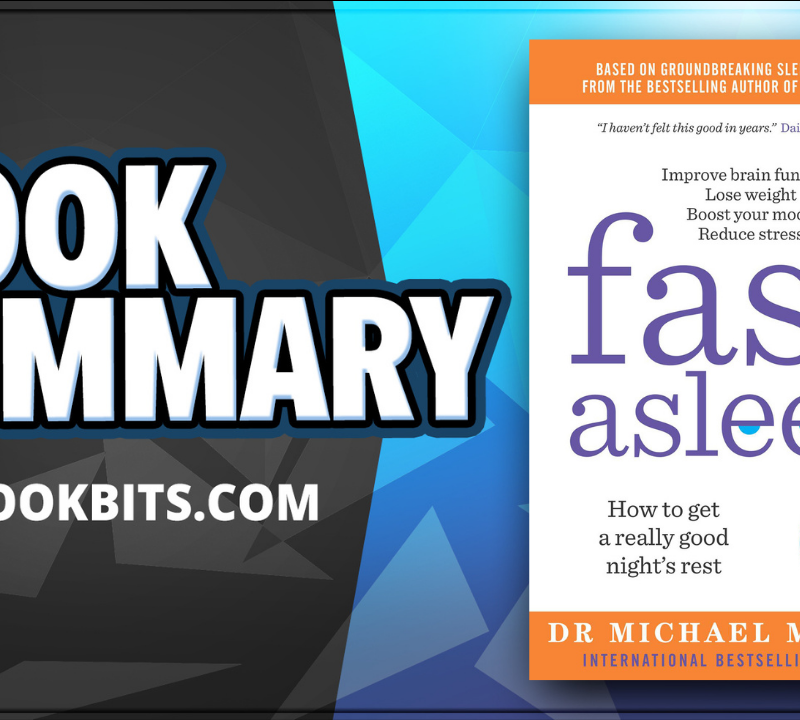GET THE 500+ BOOK SUMMARY BOX SET IN PDF & MP3 here
FOLLOW US HERE > |YouTube |Spotify | Instagram | Facebook | Newsletter | Website
We are in the midst of an obesity epidemic, but despite being inundated with diet advice we are only getting fatter. We count calories and exercise regularly, yet still the pounds won’t budge. Why?
In this highly readable and provocative book, Dr Jason Fung sets out a groundbreaking new theory: that obesity is caused by our hormones, rather than a lack of self-control.
He reveals that overproduction of insulin in the body is the root cause of obesity and obesity-related illnesses including type 2 diabetes, and offers robust scientific evidence that reversing insulin resistance is the only way to lose weight in the long term.
It turns out that when we eat is just as important as what we eat, so in addition to his five basic steps — a set of life-long eating habits that will improve your health and control your insulin levels — Dr Fung explains how to use intermittent fasting to break the cycle of insulin resistance and reach a healthy weight — for good.
Book Summary
Chapter 1: How obesity became an epidemic
There was hardly any correlation between a child environment and their obesity
A study showed that a child is more likely to resemble their parents
70% of your tendency to gain weight is determined by your parentage
Obesity is overwhelmingly inherited
Humans are not genetically predisposed to over eat and become fat
In humans, evolution did not favor obesity but rather leanness
One false assumption is that calories in and calories out are independent factors
In reality, they are dependent as calories in affects calories out
Because hormones regulate fat growth, obesity is a hormonal problem
The assumption that a calorie is a calorie is false
Different types of calories will provoke different responses in your body such as a calorie of olive oil versus a calorie of sugar
Thermodynamics, a law of physics, has minimal relevance to human biology for the simple reason that the human body it’s not an isolated system
Energy is constantly entering and leaving
The body responds to reduce caloric intake by reducing energy expenditure in different systems light body heat, hair and a nail replacement, strength and endurance, and heart volume and stroke
The theory that reducing caloric intake leads to weight loss is false
The low-fat, low-calorie diet has been proven to fail
Eating less does not result in lasting weight loss
It does not work
Exercise is not the only variable in total energy expenditure
In regards to weight loss, diet is 95%
Exercise has a lot of benefits, but not a lot towards weight-loss
Studies have also shown that increasing calories doesn’t necessarily lead to weight gain
Eating more is the consequence of weight gain
Eating more doesn’t make us fat, getting fat makes us eat more.
Obesity is a hormonal dysregulation of fat mass
Obesity is caused by a body set weight that is too high because of a hormonal imbalance in the body
Under normal conditions low insulin levels encourage glycogen and fat burning
High insulin secretion has long been associated with obesity
Obese people secrete much higher levels of insulin than do those of normal weight
Numerous studies show that insulin causes obesity
The most crucial question in obesity is “how to reduce insulin?”
Cortisol is the so-called stress hormone which mediates the flight or fight response, a set of physiological responses to perceived threats.
Cortisol raises insulin
Stress causes weight gain
Sleep deprivation leads to weight gain
Getting good sleep is essential to any weight loss plan
The carbohydrate-insulin hypothesis states that refined carbohydrates and sugars cause spikes in insulin levels
Highly refined carbohydrates don’t trigger the satiety hormones and cause an “addicted” feeling
These foods activate reward centers in our brains and make us feel comfort
Refined carbohydrates are not natural foods but are instead highly processed
There toxicity lies in that processing
Sugar seemed to contribute more to obesity than other refined carbohydrates
Insulin resistance causes high insulin levels, and high insulin levels causes obesity
Obesity is time dependent
The longer you stay obese, the harder it is to lose weight
The body builds resistance to whatever it is exposed to
Therefore, more insulin causes more insulin resistance
This causes more insulin to be produced, and the cycle continues
The staring point of the vicious cycle is high insulin levels
Eating frequent meals does not have a significant effect on your overall metabolism
Persistent, high insulin levels throughout the day is what causes an increase in insulin resistance
Another myth is that eating frequently controls hunger, but there is hard to find evidence to support this
The increase in eating opportunities has led to persistence of high levels of insulin
The idea of breakfast being the most important meal is mostly a North American custom
The Dawn Phenomenon: every morning before we wake up, a natural circadian rhythm jolts our bodies with a heavy mix of growth hormone, cortisol, epinephrine, and norepinephrine, adrenaline
This cocktail stimulates the liver to make new glucose essentially giving us a shot of good stuff to wake us up
We don’t need food when we wake up
Morning hunger is often a learned behavior starting from childhood
Most of us aren’t naturally hungry in the morning
Breakfast eaters tend to eat more and more often
Furthermore, many people admit to forcing themselves to eat breakfast because they’ve been told it’s the healthy choice
You should eat more healthy foods like fruits and vegetables, but only if it replaces unhealthy food in your diet
Replace, don’t add
High insulin resistance is known as Type 2 diabetes
Persisting high levels of insulin causes obesity and Type 2 diabetes
Fructose: the most dangerous sugar
Fructose overconsumption leads directly to insulin resistance
If you want to avoid weight gain, remove all added sugars from your diet
Don’t replace them with artificial sweeteners
Vinegar has been shown to have a mild weight loss affect
Vinegar reduces the glycemic index of carbs and reduces insulin resistance
Over 70% of insulin fluctuations is not due to blood glucose levels
If you are not hungry, don’t eat
Your body’s ability to make you feel satiety protects you from weight gain
All foods stimulate insulin so all foods can cause weight gain
Stick to real, natural foods
Studies showed that saturated fat had no correlation with coronary heart disease
Eating fat doesn’t make you fat, but may protect you against it
Eating fat together with other foods tends to decrease glucose and insulin spikes
Dietary fat would be expected to protect against obesity
The low-fat diet paradigm for weight loss was proven to be a failure
All diets work because they all address a different aspect of the disease of obesity
But none of them work for very long because none of them addresses the totality of the disease
Obesity has a multifactorial nature
Sugar directly produces insulin resistance
With no redeeming nutritional qualities, added sugars are usually one of the first foods to be eliminated in any diet
Some of the best replacements for desserts are:
fresh seasonal fruits with whip cream
nuts and cheeses
70% or more dark chocolate
If your goal is weight loss, your first major step must be to severely restrict sugar
Don’t replace sugar with artificial sweeteners as they also raise insulin as much as sugar
Don’t snack
Grazing is one of the greatest weight loss myths and the opposite of virtually all food traditions
Don’t eat snacks. Simplify your life
Make breakfast optional
If you’re not hungry, don’t eat breakfast. But if you are, it’s okay
Just don’t sacrifice quality for convenience in heavily processed, packaged, sugar added, refined carb foods
Aside from water, coffee and tea can have some protective effects against Type 2 diabetes
Reduce your consumption of refined grains, such as white flour, stimulate insulin to a greater degree than virtually any other food
The toxicity in much western food lies in the processing rather than in the food itself
The carbohydrates in western diets are heavily skewed towards refined grains and are thus highly obesegenic
Moderate your protein consumption
Increase your consumption of natural fats
Dietary fats is the least likely to stimulate insulin of the three macronutrients
Increase your consumption of protective factors
Five basic steps of weight loss:
Reduce your consumption of added sugars
Reduce your consumption of refined grains
Moderate your protein intake
Increase your consumption of natural fats
Increase your consumption of fiber and vinegar
There’s actually a lot more agreement with many mainstream diets than we think
But the discord is what fuels sales in books and advice
“There is nothing new except what has been forgotten” Marie Antoinette
Insulin resistance is a problem of meal timing
Fasting is one of the oldest remedies in human history and has been part of the practice of virtually every culture and religion on earth
Fasting is an inherent human instinct especially when we are sick
Fasting is the most efficient and consistent strategy to decrease insulin levels
The body preserves muscle mass until fat stores become so low that it has no the choice
Feasting follows fasting, and fasting follows feasting
Diets must be intermittent, not steady
It is clear that there are no lasting negative side effects to fasting.
On the contrary, it appears to have extraordinary health benefits
Fasting can be combined with any diet imaginable
There are two main considerations for proper food choices:
What to eat
When to eat
Fasting is defined as the voluntary act of withholding food for a specific period of time
Non-caloric drinks such as water and tea are permitted. And absolute fast refers to the withholding of both food and drink
Make sure to break your fast gently and don’t over eat
Sample foods for breaking your fast include a handful of nuts or a salad
During fasting, it is important to recognize that hunger does not persist but instead comes in waves
Staying busy during a fasting day often works
Starting your day with a glass of cold water helps
Fasting is actually an ideal time to exercise
Main ideas / Themes:
Because hormones regulate fat growth, obesity is a hormonal problem
Eating less does not result in lasting weight loss
In regards to weight loss, diet is 95%
Cortisol raises insulin
Getting good sleep is essential to any weight loss plan
The longer you stay obese, the harder it is to lose weight
We don’t need food when we wake up
If you want to avoid weight gain, remove all added sugars from your diet
Reduce your consumption of refined grains
Sugar directly produces insulin resistance
If you are not hungry, don’t eat
Stick to real, natural foods
All diets work because they all address a different aspect of the disease of obesity
Don’t snack
Insulin resistance is a problem of meal timing
Fasting is the most efficient and consistent strategy to decrease insulin levels
Make sure to break your fast gently and don’t over eat













